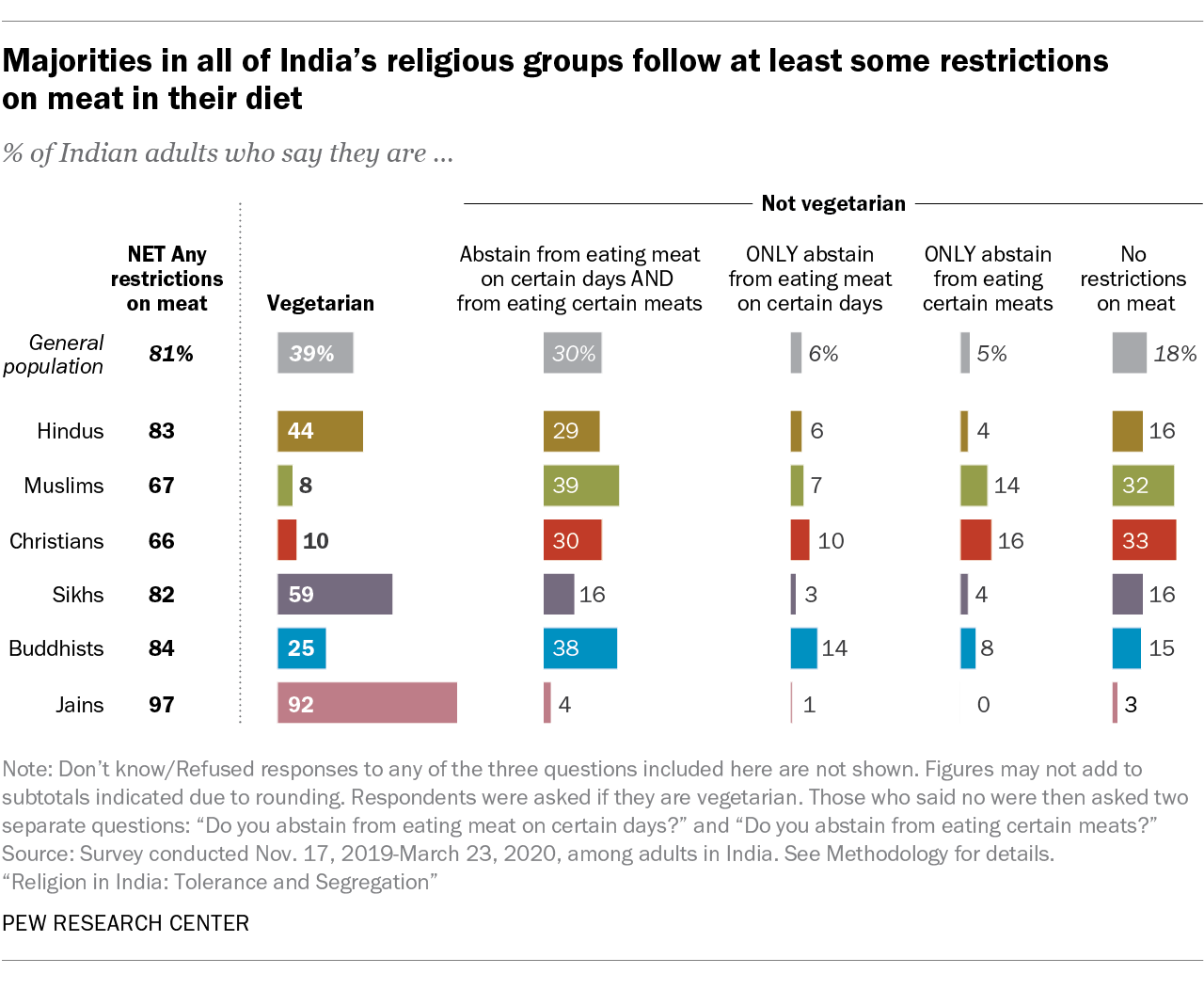
All of India’s most widely practiced religions have dietary laws and traditions. For example, Hindu texts often praise vegetarianism, and Hindus may also avoid eating beef because cows are traditionally viewed as sacred. Muslim teachings, meanwhile, prohibit pork.
The vast majority of Indian adults (81%) follow some restrictions on meat in their diet, including refraining from eating certain meats, not eating meat on certain days, or both. However, most Indians do not abstain from meat altogether – only 39% of Indian adults describe themselves as “vegetarian,” according to a new survey. (While there are many ways to define “vegetarian” in India, the survey left the definition up to the respondent.)
Read more: Eight-in-ten Indians limit meat in their diets, and four-in-ten consider themselves vegetarian